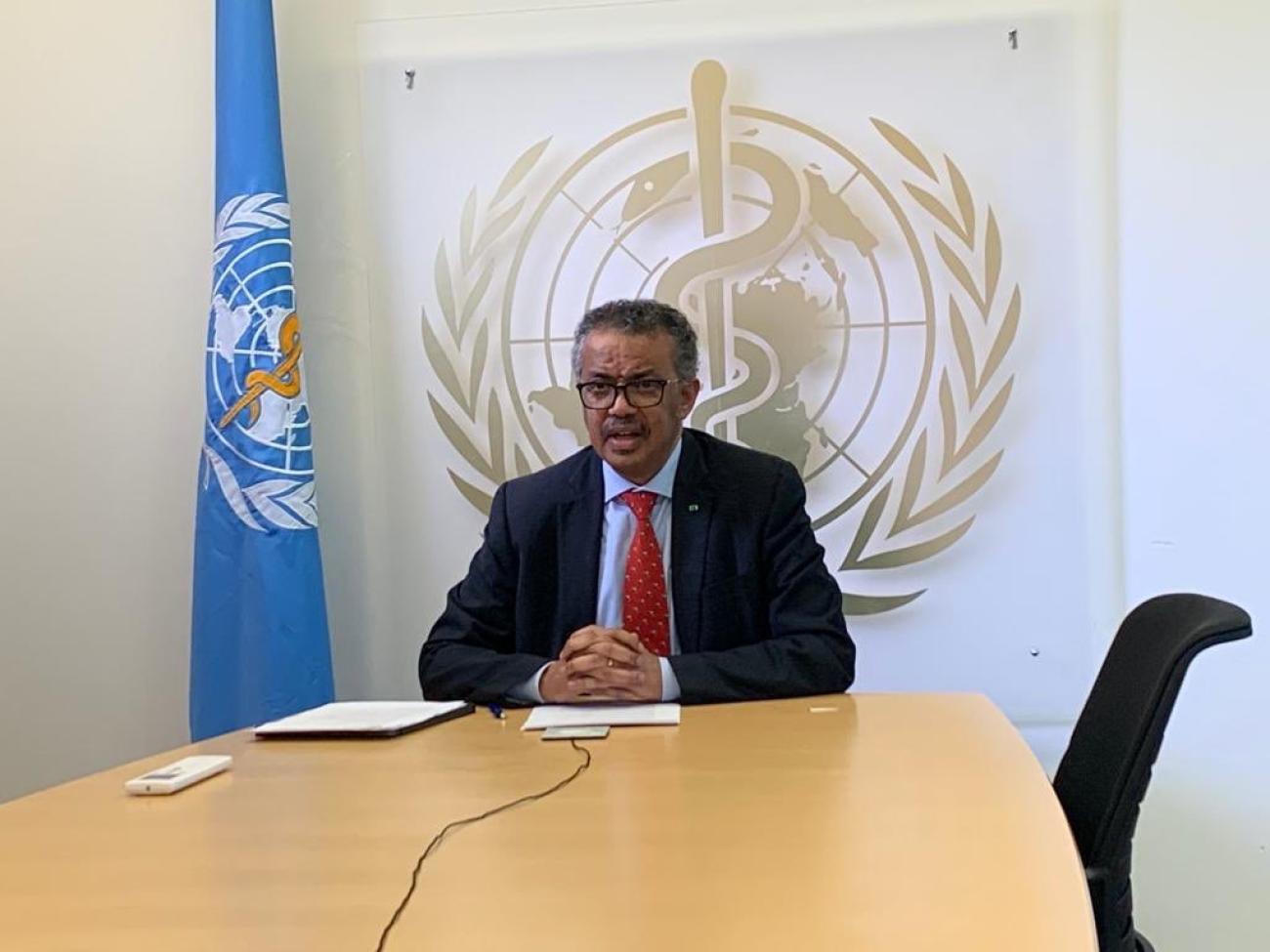COVID-19: ‘Phased process’ for lifting restrictions is key, WHO chief urges G20

The head of the World Health Organization urged G20 countries to plan easing their COVID-19 measures as a "phased process"
The head of the World Health Organization (WHO) told a virtual meeting of the G20 leading global economies on Sunday that although it was encouraging for some countries to be planning to ease lockdowns against COVID-19, “it is critical that these measures are a phased process”.
Tedros Adhanom Ghebreyesus reiterated the UN’s appreciation committing to further strengthen WHO’s mandate in coordinating the international fight, noting that “all of your countries have been affected, and you are all at different stages of the response.”
With some countries such as Austria, Germany and Italy, beginning to announce an easing of restrictions in line with encouraging data such as falling caseloads and hospital deaths, Tedros said it was key to see lifting so-called lockdown restrictions as “not the end of the epidemic in any country; it’s just the beginning of the next phase.
“It’s vital in this next phase that countries educate, engage and empower their people to prevent and respond rapidly to any resurgence”, he said adding that it was essential to ensure they have capacity to “detect, test, isolate and care for every case, and trace every contact, and to ensure their health systems have the capacity to absorb any increase in cases.”
He welcomed a pledge from G20 chair, Saudi Arabia of $500 million to support global efforts against the pandemic, including concrete action with the G20 Global Innovation Hub for Improving Value in Health, the Digital Health Task Force and the Global Patient Safety Leaders Group.
The WHO chief said he was deeply concerned that the virus now appears to be “gathering pace in countries that lack the capacity of many G20 countries to respond to it. Urgent support is needed, not only to support countries to respond to COVID-19, but to ensure other essential health services continue.”
He added, in response to criticism from the US and other sceptics over WHO’s handling of the early stage of the international health emergency in China, that “since the beginning”, the agency had “sounded the alarm bell loud and clear.”
“And we continue to fulfil our mandate to coordinate the global response, working with partners to save lives. We’ve engaged thousands of scientists and experts all over the world to develop detailed technical guidance for countries. We’ve shipped supplies of lab diagnostics and personal protective equipment to many countries, and expanded testing capacity.”
Tedros noted that WHO had provided training for more than 1.5 million health workers, launched the Solidarity Trial, to generate robust safety and efficacy data about the four drugs which could lead to a breakthrough in treatment to lower the fatality rate.
The international community has rallied in support of the global response, he told the G20, with more than $900 million pledged thus far for the agency’s Strategic Preparedness and Response Plan.
Through the UN Supply Chain Task Force, he said WHO was working with the World Food Programme (WFP) and other partners to distribute personal protective equipment to countries all over the world.
Tedros concluded by making three requests of the most powerful economies on the planet: “First, we urge each of your countries to continue to fight the pandemic with determination, guided by science and evidence. Second, we are looking to the G20 countries to continue to support the global response to COVID-19.
We will soon publish a second Strategic Preparedness and Response Plan, with an estimate of the resources needed for the next phase of the response.
And finally, he called on all G20 countries to work together to increase the “production and equitable distribution” of essential supplies, and to remove trade barriers that put health workers and their patients at risk.
“The COVID-19 pandemic has reminded us of a simple truth: we are one humanity. We share the same planet. We share the same hopes and dreams. We share the same destiny”, he concluded.
